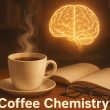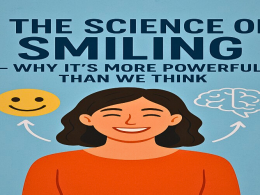That first sip of coffee feels like magic. One moment you’re a zombie staring blankly at your to-do list, and the next you’re firing off emails like a productivity machine. But here’s the truth: it’s not magic. It’s chemistry.
Coffee works on your brain at a molecular level, tricking it into feeling awake, focused, and even a little happier. Let’s break down exactly how caffeine pulls off this daily brain hack.
Why You Feel Sleepy in the First Place
Your brain has a molecule called adenosine. Think of it as your body’s natural “tiredness meter.”
Every hour you’re awake, adenosine builds up in your brain.
The more it builds, the sleepier you feel.
At night, when levels are high, you finally crash.
In simple terms: adenosine is like sandbags piling onto your brain throughout the day.
How Caffeine Hijacks the System
Here’s where coffee swoops in like a hacker.
Caffeine looks almost identical to adenosine at the molecular level.
It slips into adenosine’s “locks” (receptors) in your brain.
With caffeine plugging those locks, the real adenosine can’t get in.
The result? Your brain doesn’t get the “you’re tired” signal. Even if you should be exhausted, you feel awake.
It’s like sticking a fake key into every door of a hotel — the actual guests (adenosine) are locked out.
Why Coffee Feels So Good: The Dopamine Boost
Blocking sleepiness is only half the story. Caffeine also boosts dopamine, the “feel-good” chemical.
Dopamine is what makes us feel motivated, rewarded, and focused. By enhancing dopamine signaling, caffeine doesn’t just keep you awake — it makes you feel sharper, happier, and more driven.
That’s why coffee feels different from just splashing cold water on your face. It’s a mood upgrade as much as an energy one.
The Crash (and Why You Need More Coffee Over Time)
Of course, there’s a catch.
While caffeine is busy blocking the locks, adenosine doesn’t stop building up. It keeps stacking behind the doors.
So, when the caffeine wears off:
All that stored-up adenosine floods in at once.
Boom — you get the infamous caffeine crash.
And if you’re a daily drinker, your brain adapts by making more adenosine receptors. That’s why over time you need bigger cups (or stronger brews) to get the same buzz.
Fun Facts You’ll Want to Drop in Conversation
Half-life: Caffeine lingers for about 5 hours in your system. That afternoon latte at 4 PM? It’s still partially there at 9 PM.
Genetics: Some people break down caffeine faster than others — blame (or thank) your DNA.
Tea vs. Coffee: Tea has less caffeine but more L-theanine, an amino acid that smooths the buzz and reduces jitters.
Energy Drinks: Many just cram in caffeine + sugar — no magic there, just a double whammy.
The Takeaway
So the next time your morning brew saves you, remember: it’s not just a drink. It’s a molecular brain hack, blocking sleep signals, boosting dopamine, and tricking your neurons into thinking you’re unstoppable.
Coffee isn’t magic. It’s chemistry. And for millions of us, it’s the best little hack we start our day with.










